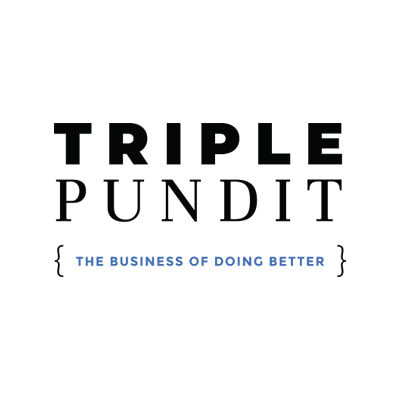
In the run up to the COMMIT!Forum, CR Magazine spoke with Michele Bartolini, Marketing Director at Rolland Paper. Bartolini oversees marketing for the premium paper company, which puts reuse at the center of its business model.
CRMag: As a marketer, does telling the Corporate Responsibility (CR) story feel different from everyday sales & marketing?
Michele Bartolini Rolland’s CR story and our marketing story are really one and the same – there’s no dividing line.
This story is all about corporate responsibility, on the part of Rolland and our customers: Our objective is to make the best recycled paper, and maintain the smallest environmental footprint, to help our customers maintain sustainable supply chains. This is tied into our values, our actions, and what we stand for as a company – and our sales people tell this story every day.
In brief, CR is business-as-usual for Rolland.
CRMag: How has your understanding of CR — within your company or sector and as a general matter — evolved over time?
MB: As society in general has become more sensitized to environmental concerns, purchasing patterns have evolved and that has spurred demand for recycled paper – a responsible product.
Rolland has manufactured recycled paper since 1989, so we have a long-standing commitment to the environment. All the same, we continuously refine our practices, and work to stay at the cutting edge. One example is our Life Cycle Assessment, an evaluation of the environmental footprint of Rolland papers published in 2016, which uses the latest scientific techniques.
And our understanding of CR has evolved through our work with Canopy, a non-profit, to develop a comprehensive ancient-forest-friendly fiber procurement policy for our company.
CRMag: How do you convey Rolland’s CR's value proposition to your many different stakeholders?
MB: Here's how we segment them:
- Employees: We encourage all employees to come forward with their ideas and innovations across the board – and that includes CR-related matters. For example, our commitment to biogas energy was triggered by an idea from an employee who was then our Purchasing Director.
- Customers: Everything in our marketing mix – website, tools like our eco-calculator, collateral materials, conferences and events, and media relations – reflects our CR positioning.
- Public at large: Certifications like Forest Stewardship Council (FSC), ECOLOGO, and Ancient Forest Friendly tell consumers we comply with environmentally-friendly international standards.
- Influencers: Rolland’s Green Champions campaign on LinkedIn features interviews with sustainability-minded customers and partners.
MB: Gaining visibility in the U.S. market by continuing to be the best recycled paper manufacturer in the market, with a long-standing commitment to minimizing our environmental footprint, and maximizing the performance of our products so customers can meet their sustainability goals without sacrificing print quality.
Continuing to push the boundaries, such as being fully transparent by posting on our website the comprehensive Life Cycle Assessment of the environmental footprint of Rolland papers, from raw materials to disposal.
Publishing thought leadership pieces from sustainable organizations that have common values with Rolland, like the non-profit Canopy.
Partnering with customers, like LUSH and Cirque du Soleil, to share sustainability best practices.
Continuing to maintain the product certifications and attributes that make us an environmental leader in the industry, and disclosing that information in a transparent manner.
CRMag: What are your game-changing messages or takeaways for our audience?
MB: Any recycled paper consumer that wants to have a truly sustainable supply chain can up their game by partnering with us!
Rolland operates the only paper mill in North America fueled mainly by biogas energy, which keeps our carbon dioxide emissions at industry-low levels.
Rolland Enviro papers have a smaller environmental footprint than the average virgin and recycled papers in North America. This is mainly because of our 100 percent post-consumer recycled content, de-inking without chlorine, and usage of renewable energy – biogas and hydroelectricity.

TriplePundit editors offer news and insights on sustainable business.














